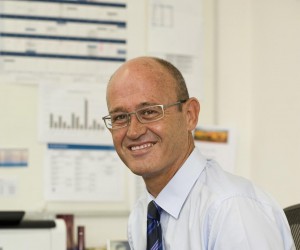According to the results of a new survey conducted by PPS, 43% of over 700 South African engineers feel that the current engineering degree does not train students sufficiently.
Gerhard Joubert, Head of Group Marketing and Stakeholder Relations at PPS, the financial services provider focused on graduate professionals, says that the result is concerning. “These findings are in line with the Manpower Group South Africa’s Talent Shortage Survey of 2013, which revealed that engineering positions were the most difficult for companies to fill.”
A report conducted by the UK Royal Academy of Engineering on the engineering capacity requirements in sub-Saharan Africa mirrors this result, attributing the notable levels of unemployment among engineering graduates to a lack of necessary skills and experience following graduation, particularly as a result of the lack of work experience as they train only once in the workplace.
The survey also found that 82% of respondents feel that not enough is being done to attract new engineers to the profession. ”While this result is very high, it is most likely a result of the persistent skills shortage crisis facing the local engineering industry, rather than a lack of interest,” says Joubert.
According to Vaughan Rimbault, Chief Executive Officer of the South African Institution of Mechanical Engineering (SAIMechE), there is an annual oversubscription to engineering study programme at tertiary level – in some cases by as much as 400%. “These results rather point to the need for more educational opportunities to be made available to aspiring engineers, which would ultimately assist in resolving the current skills shortage in the engineering profession.”
Engineers play a vital role in implementing solutions to solve major issues such as water availability, public transport, access to information and communication technologies, as well as energy security, says Joubert. “As a result, it is imperative that more opportunities to study towards becoming an engineer are made available to ensure the sustainability and growth of the local economy.”
Respondents also revealed some concern about whether government is effectively delivering on its promised infrastructure spend with a confidence level of 41% being recorded, down seven percentage points year-on-year.
In his Budget speech, Finance Minister Pravin Gordhan stated that R827-billion will be drawn from the fiscus and state-owned enterprises to go towards South Africa’s infrastructure projects to take place over the next three years. “This is positive news given the fact that R642-billion was spent over the past three years,” says Joubert.
82% of respondents also cited confidence in the future of the profession in South Africa with 74% of engineers saying they are confident they will remain in the country for the foreseeable future. “While these figure are both high, they have both dropped two percentage points year-on-year and should be watched closely,” says Joubert.
“The engineering profession is critical to the development of national and regional infrastructure and resultant economic growth. Therefore, it is important that steps are taken to ensure more people are provided with the chance to pursue a career in engineering while also looking for ways to improve the current engineering degree to ensure graduates are equipped for the workplace,” concludes Joubert.






